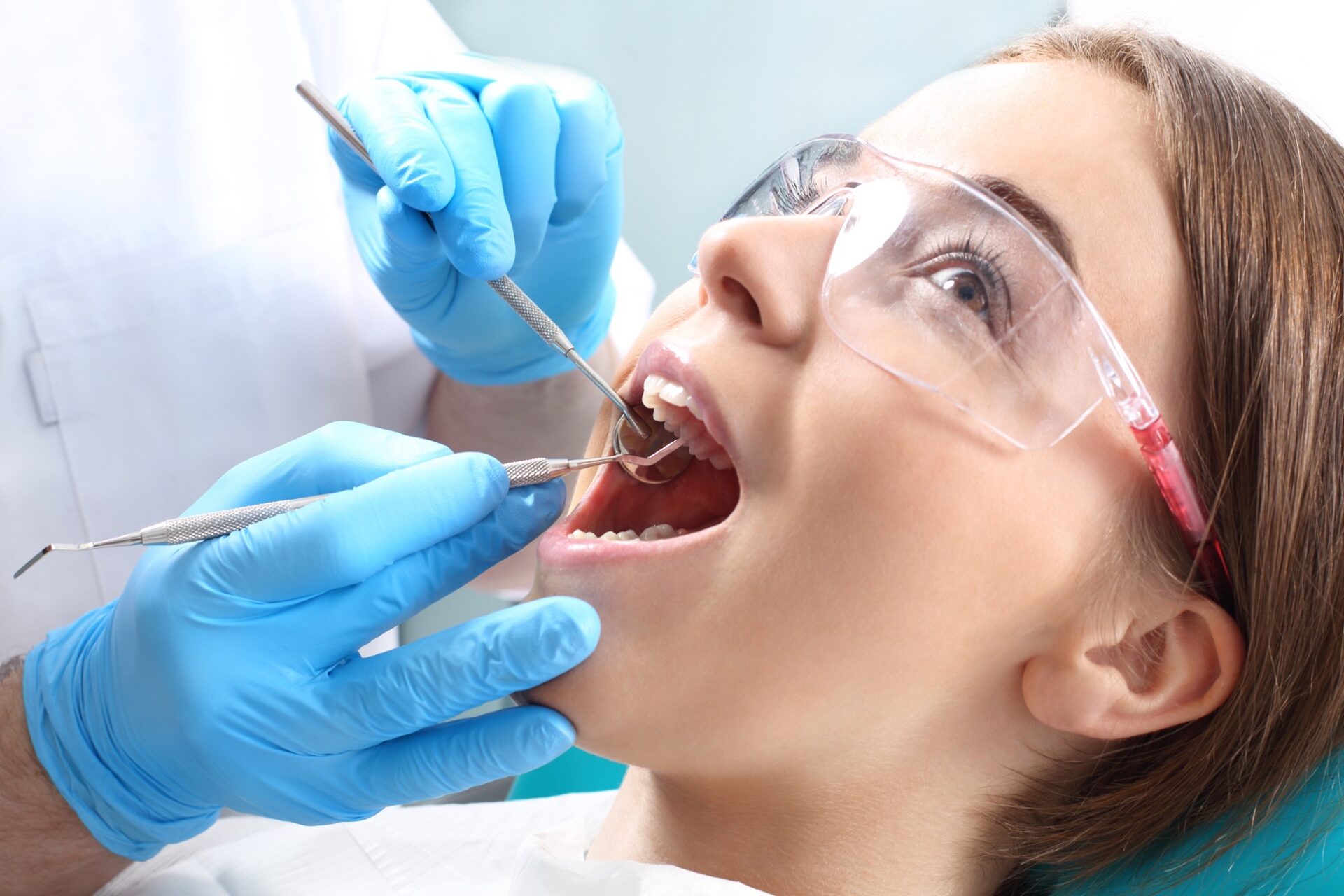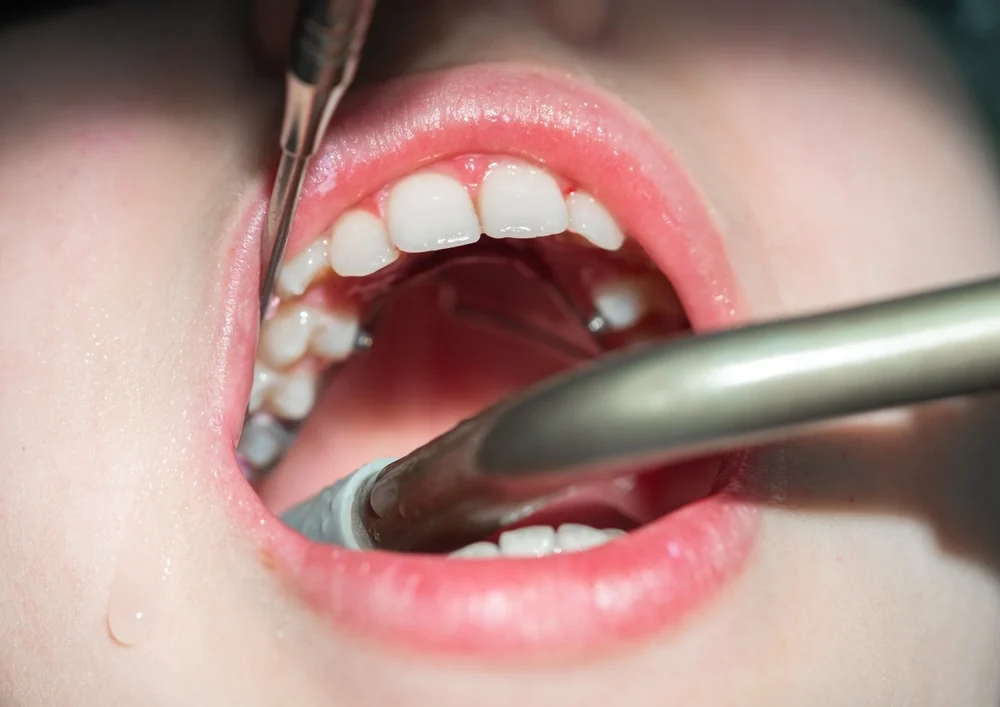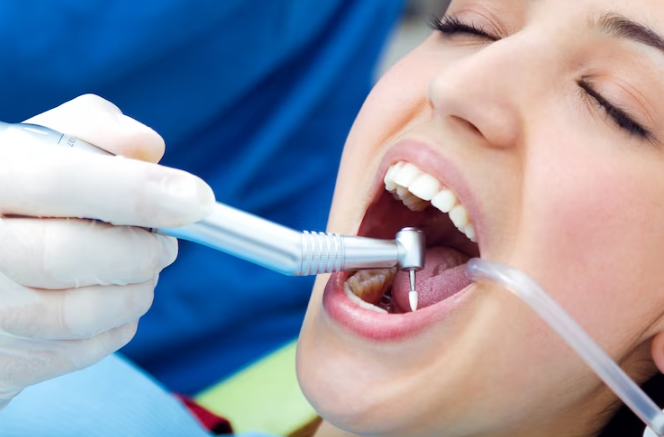Teeth Cleaning Pompano Beach FL | JB Dentistry
Professional Teeth Cleaning in Pompano Beach FL with JB Dentistry
Teeth cleaning is an important part of maintaining a healthy oral hygiene routine. Regularly brushing and flossing help to remove plaque, bacteria, and food particles from the teeth that can cause decay if left unchecked.

what happens during a dental cleaning?
During a dental cleaning, also known as dental prophylaxis, a dental professional, such as a dentist or dental hygienist, thoroughly cleans your teeth and gums.
The process typically involves the following steps:
- Examination: Before the cleaning begins, the dental professional will examine your mouth, teeth, and gums to assess your oral health. They may use a small mirror to look closer and identify potential issues.
- Plaque and Tartar Removal: Using specialized dental tools, the dental professional will carefully remove plaque and tartar (hardened plaque) from your teeth. This process, called scaling, targets the buildup of bacteria and deposits that can contribute to tooth decay, gum disease, and bad breath.
- Tooth Polishing: After scaling, the dental professional will use a gritty toothpaste-like substance and a high-powered electric brush or a manual polishing tool to polish the surface of your teeth. This helps remove surface stains and gives your teeth a smooth and shiny appearance.
- Flossing: The dental professional will floss between your teeth to remove any remaining plaque or debris that may have been missed during brushing or scaling. Flossing also helps ensure that the spaces between your teeth and along the gumline are clean.
- Rinsing: You’ll be asked to rinse your mouth with water or an antimicrobial mouthwash to remove any remaining debris or cleaning agents.
- Examination and Education: After the cleaning, the dental professional will examine your teeth and gums again to ensure everything looks healthy. They may also guide proper oral hygiene techniques, including brushing, flossing, and any additional care specific to your needs.
- X-rays (if necessary): In some cases, dental X-rays may be taken to get a more comprehensive view of your oral health. X-rays can reveal hidden problems, such as tooth decay or issues below the gumline.
types of dental cleaning
disease prevention
When it comes to oral care, we often focus solely on brushing and flossing as our primary methods of keeping our teeth healthy. However, disease prevention is also an important aspect of teeth cleaning that often goes overlooked. This type of cleaning focuses not just on getting rid of plaque and bacteria, but also on preventing issues like gum disease and tooth decay.
Preventative measures such as fluoride treatments, dental sealants, and regular check-ups with your dentist can go a long way in maintaining your oral health. By incorporating disease prevention into your dental routine, you can ensure that your teeth and gums stay healthy and strong for years to come.
root planing cleaning
Root planing cleaning is more than just a basic teeth cleaning. It is a specialized treatment that targets the deeper levels of your gums and teeth to remove harmful tartar buildup. This type of cleaning is typically recommended for patients who have early-stage gum disease or those who are prone to excessive plaque buildup.
Unlike regular cleanings, root planing can take a bit longer and may require some anesthesia to ensure your comfort. However, the benefits of this type of cleaning can be significant, including healthier gums, fresher breath, and a brighter smile. If you’re due for a cleaning, be sure to ask your dentist about whether root planing is right for you.
mouth debridement
Mouth debridement is one type of teeth cleaning that is used to remove any build-up of plaque or tartar. This is done using special instruments that are designed to reach areas that regular brushing and flossing may miss. A mouth debridement ensures that your teeth are thoroughly cleaned, leaving them looking and feeling much more refreshed.
Not only will your teeth be cleaner, but your mouth will also feel healthier, giving you confidence in your smiling and speaking. Schedule an appointment for mouth debridement today and see the difference it can make in your oral health.
periodontal cleaning
Periodontal cleaning is more than just a regular teeth cleaning. It’s a deep cleaning that targets below the gumline, where most tooth decay and gum disease originate. This type of cleaning is typically recommended for individuals with moderate to severe gum disease.
If left untreated, gum disease can lead to tooth loss and other serious health issues. By opting for a periodontal cleaning, you can help prevent these complications and maintain good oral health. It’s important to schedule regular dental cleanings so that your dentist can assess your gum health and recommend the appropriate cleaning method for you.
what does teeth cleaning remove?
Dental professionals perform teeth cleaning or prophylaxis to remove various substances from your teeth. Here are some of the main things that are removed during teeth cleaning:
- Plaque: Plaque is a sticky film that forms on the surface of your teeth due to the accumulation of bacteria, saliva, and food particles. It is a major cause of tooth decay and gum disease. During a cleaning, dental professionals use special tools to carefully remove plaque from the tooth surfaces, including those hard-to-reach areas.
- Tartar (calculus): Tartar is hardened plaque mineralizing and adhering to the teeth. It forms when plaque is not adequately removed through regular brushing and flossing. Tartar cannot be removed by regular brushing alone and requires professional dental tools. If left untreated, tartar buildup can lead to gum disease and other oral health issues.
- Stains: Dental cleaning can help remove surface stains that develop on teeth due to certain foods, beverages (such as coffee or tea), tobacco use, or aging. The polishing step of a dental cleaning helps to smooth and polish the tooth surfaces, reducing the appearance of stains and giving your teeth a cleaner, brighter look.
- Bacteria and Debris: During a cleaning, the dental professional also removes bacteria, food particles, and other debris that may be trapped between the teeth or along the gumline. Thorough removal of these substances helps reduce the risk of tooth decay, gum disease, and bad breath.
By removing plaque, tartar, stains, and other unwanted substances, teeth cleaning plays a vital role in maintaining good oral health. It helps prevent dental problems like cavities and gum disease and contributes to fresh breath and a brighter smile. Regular professional cleanings and a good oral hygiene routine at home are key to keeping your teeth and gums healthy. Jaline Boccuzzi, DMD, AAACD is all you need for dependable teeth cleaning services.
benefits of teeth cleaning
Regular teeth cleaning, performed by dental professionals, offers several important benefits for your oral health. Here are some key advantages of teeth cleaning:
- Prevents Tooth Decay: Dental cleanings remove plaque and tartar, major contributors to tooth decay. Cleanings help protect your teeth from decay and cavities by eliminating these harmful substances.
- Prevents Gum Disease: Plaque and tartar buildup can irritate and inflame the gums, leading to gum disease. Regular cleanings remove these harmful deposits and reduce the risk of gum disease, including gingivitis and periodontitis.
- Freshens Breath: Lingering bacteria, food particles, and plaque can contribute to bad breath. Teeth cleaning removes these odor sources, leaving your breath fresher and more pleasant.
- Brightens Your Smile: Dental cleanings often involve tooth polishing, which removes surface stains and discoloration caused by coffee, tea, tobacco, and certain foods. The result is a brighter, more polished smile.
- Early Detection of Dental Issues: Dental professionals examine your mouth for signs of oral health problems during cleaning. This includes checking for cavities, gum disease, oral cancer, and other issues. Early detection allows for timely intervention and treatment, potentially preventing more serious problems in the future.
- Improves Overall Health: Oral health is interconnected with general health. Regular teeth cleanings may improve overall health by reducing the risk of certain systemic conditions associated with poor oral health, including cardiovascular disease, diabetes, and respiratory infections.
- Saves Money in the Long Run: Investing in regular dental cleanings can help you save money by preventing costly dental procedures that may be needed to treat advanced tooth decay, gum disease, or other oral health issues. By maintaining good oral health, you can avoid more extensive and expensive treatments down the line.
It’s important to note that the benefits of teeth cleaning extend beyond the cleaning session itself. Maintaining a proper oral hygiene routine at home, including brushing twice daily, flossing, and using mouthwash with regular dental cleanings, is crucial for optimal oral health and overall well-being.
how long does a teeth cleaning take?
The duration of a teeth cleaning appointment can vary depending on various factors, including the individual’s oral health, specific dental issues, and the dental professional’s approach. Generally, a routine dental cleaning typically takes between 30 minutes to an hour to complete. However, more extensive cleanings or additional procedures may take longer.
Here are some factors that can affect the duration of a teeth cleaning:
- Oral Health Status: The condition of your teeth and gums can influence the length of the cleaning appointment. If you have minimal plaque and tartar buildup, healthy gums, and good oral hygiene, the cleaning may be quicker. However, if there is significant buildup or signs of gum disease, the cleaning process may take longer to address these issues adequately.
- X-rays or Examination: If dental X-rays or a comprehensive oral examination is necessary, it may extend the overall time of the appointment. X-rays help the dental professional assess your oral health more comprehensively and detect hidden problems that may require attention.
- Scaling and Tartar Removal: The amount of plaque and tartar buildup can affect the duration of the scaling process. If there is a substantial accumulation, more time will be needed to remove the deposits from the tooth surfaces thoroughly.
- Additional Procedures: Depending on your specific needs, the dental professional may recommend additional procedures during the cleaning appointment. This could include treatments such as fluoride application, dental sealants or discussing treatment plans for any identified dental issues. These additional procedures can increase the overall time of the appointment.
It’s worth noting that dental professionals prioritize thoroughness and quality of care over speed during a cleaning. They will take the time to ensure your teeth and gums are properly cleaned and address oral health concerns. It’s always best to consult with your dental office directly to get a more accurate estimate of the duration of your cleaning appointment.
pricing
At our dental office, we are committed to providing high-quality dental care that is accessible and affordable for all of our valued patients. We believe that transparent pricing is essential in helping you make informed decisions about your dental treatment.
We encourage you to schedule a consultation with our dental team for a personalized treatment plan and accurate pricing information. Call us today!
Related Teeth Cleaning Articles
Teeth cleaning is an important part of maintaining a healthy oral hygiene routine. Regularly brushing and flossing help to remove plaque, bacteria, and food particles from the teeth that can cause decay if left unchecked.
Inside the Chair: What Your Teeth Reveal During a Dental
There’s something oddly revealing about sitting in a dental chair. You lean back, open your mouth, and suddenly, your teeth…

Dr. Jaline Boccuzzi DMD AAACD PA 
From Fresh Breath to Preventing Disease: How Dental Cleaning Impacts
A one-hour cleaning can do more for your body than a new mouthwash. That visit doesn’t just polish teeth. It…

Dr. Jaline Boccuzzi DMD AAACD PA 
Beyond Fresh Breath: How Regular Dental Cleanings Protect Your Health
It’s easy to think of dental cleanings as just a way to freshen your breath, but they do a lot…

Dr. Jaline Boccuzzi DMD AAACD PA 